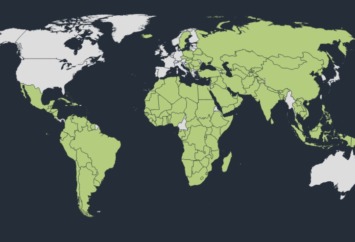As U.S. citizens, we have the ability—and responsibility—to advocate for humanitarian rights around the world, including in Gaza. The Israeli blockade that severely restricts food, medical supplies, and other essential resources to Palestinians is a humanitarian crisis that requires immediate action. While this may seem like a distant issue, there are tangible steps you can take right now, from the district level all the way to Congress, to push for meaningful policy changes that can help lift the blockade and bring relief to those suffering in Gaza.
1. Contact Your Representatives: Make Your Voice Heard
One of the most direct ways to influence policy is by contacting your local representatives. Every member of Congress represents a specific district, and they are there to serve their constituents—that’s you. Here’s how to get started:
- Find Your Representatives: Visit house.gov to find your representative by entering your ZIP code. For senators, you can visit senate.gov.
- Write or Call: Once you know your representatives, reach out to them. You can write an email, send a letter, or make a phone call to their office. Clearly explain your stance on the Israeli blockade of Gaza, emphasizing the humanitarian crisis it’s creating by restricting food and medical supplies. Urge them to support bills or policies that pressure Israel to lift the blockade and allow free flow of essential resources.
- Talking Points:
- The blockade is causing widespread food insecurity, with 96% of Gaza’s population facing crisis levels of hunger.
- The restriction of humanitarian aid violates basic human rights.
- Lifting the blockade is essential to restoring food security and access to medical care.
Remember, your representatives may not be fully aware of the issue, so provide them with facts and clear reasons why change is needed.
2. Support and Sign Petitions
Petitions are a powerful way to demonstrate collective action, especially when they target decision-makers at a higher level. Here are some steps to get involved in petitioning for change:
- Sign Existing Petitions: Organizations such as Amnesty International, Human Rights Watch, and Avaaz often have active petitions calling for the end of the blockade in Gaza. Sign these petitions and share them on social media to amplify their reach.
- Start Your Own Petition: If you feel passionate about this issue, consider starting your own petition. Use platforms like Change.org or Petitions.WhiteHouse.gov to create a petition that calls on U.S. policymakers to pressure Israel to lift the blockade. Once your petition is live, reach out to friends, family, and local organizations to gather signatures.
- Share on Social Media: Make sure to spread the word on social media platforms. Use hashtags such as #LiftTheBlockade, #GazaHumanRights, and #FreePalestine to raise awareness and gain momentum.
3. Attend or Organize Local Town Halls and District Meetings
Town halls and district meetings are opportunities for you to speak directly to your elected officials and local representatives. Many representatives host town halls to hear from their constituents, and this is your chance to bring up the issue of the Gaza blockade and advocate for policy change.
- Find Local Events: Check your representative’s website or social media accounts to see if they are hosting any upcoming town halls. You can also call their office to inquire about meetings where constituents can voice concerns.
- Prepare Your Message: Before attending, have a clear, concise message about why you believe U.S. policy should push for an end to the blockade on Gaza. Focus on humanitarian concerns and U.S. leadership in advocating for human rights globally.
- Be Polite, But Firm: It’s important to remain respectful, even if your representative doesn’t immediately agree with your position. Frame your advocacy in terms of compassion, justice, and humanitarian values. If your representative is unresponsive, consider rallying more constituents in your area to attend future meetings and make your collective voices heard.
4. Join or Support Advocacy Groups
There are many organizations working to raise awareness about the humanitarian crisis in Gaza and to influence U.S. policy. By supporting these organizations, either through donations or by becoming an active member, you can help create pressure on lawmakers.
- Join Groups Like:
- Jewish Voice for Peace: This group advocates for an end to the occupation and has a strong network pushing for policy change.
- Code Pink: A grassroots movement that organizes campaigns around U.S. foreign policy, including efforts to end the blockade on Gaza.
- American Muslims for Palestine (AMP): They offer toolkits and campaigns specifically designed to push for policy changes in support of Palestinians.
These organizations often provide resources like letter-writing templates, pre-drafted emails to representatives, and phone scripts to help guide your activism.
5. Push for Policy Change on a National Level
While contacting your local representatives is essential, larger-scale policy changes often happen at the national level. By advocating for specific legislation, you can help push for meaningful action.
- Support Humanitarian Legislation: Bills related to humanitarian aid and Palestinian rights are regularly introduced in Congress. Currently, there are efforts to push legislation that demands Israel lift the blockade on Gaza. Stay informed about these bills and advocate for their passage.
- Advocate for U.S. Aid to Be Conditional: The U.S. provides significant financial and military aid to Israel. Many advocacy groups are pushing for this aid to be conditional, meaning that it should only continue if Israel complies with international law and allows humanitarian aid into Gaza. Pressure your representatives to support this approach.
6. Leverage the Power of Social Media
Social media is a powerful tool for raising awareness and mobilizing action. Use your platform to speak about the blockade in Gaza, share petitions, and encourage others to take action.
- Share Stories and Facts: Personal stories and hard facts make a bigger impact than general statements. Highlight the humanitarian crisis by sharing real-life accounts from Gaza or posting statistics about food insecurity and medical shortages.
- Tag Representatives and Media Outlets: Use platforms like Twitter to tag your representatives, U.S. government officials, and media outlets in your posts. The more visibility you create, the more pressure there is for lawmakers to respond.
7. Stay Engaged and Follow Up
Advocacy is not a one-time action. Stay engaged with the issue by following up with your representatives, tracking policy developments, and continuing to speak out.
- Follow Up with Representatives: After writing or calling your representatives, follow up to see if they have taken action. If they haven’t, politely remind them of the urgency of the issue.
- Track Policy Changes: Keep up-to-date with new bills or policy changes that could affect the blockade on Gaza. Stay connected with advocacy groups that are monitoring the situation closely.
Conclusion: Take Action Today
The situation in Gaza is dire, but as U.S. citizens, we have the power to push for change. By contacting your representatives, signing and sharing petitions, attending local meetings, and supporting advocacy groups, you can help create real pressure on the U.S. government to address the Israeli blockade of Gaza and support humanitarian access.
Change starts with action, and the time to act is now. Together, we can make a difference in the lives of those suffering in Gaza.




